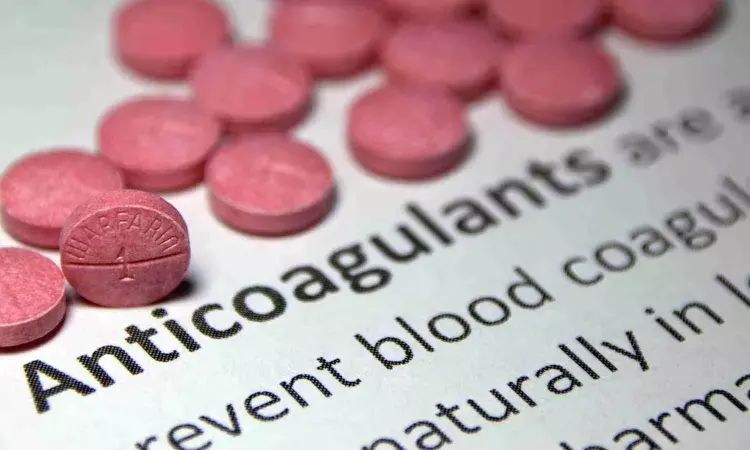- Home
- Medical news & Guidelines
- Anesthesiology
- Cardiology and CTVS
- Critical Care
- Dentistry
- Dermatology
- Diabetes and Endocrinology
- ENT
- Gastroenterology
- Medicine
- Nephrology
- Neurology
- Obstretics-Gynaecology
- Oncology
- Ophthalmology
- Orthopaedics
- Pediatrics-Neonatology
- Psychiatry
- Pulmonology
- Radiology
- Surgery
- Urology
- Laboratory Medicine
- Diet
- Nursing
- Paramedical
- Physiotherapy
- Health news
- Fact Check
- Bone Health Fact Check
- Brain Health Fact Check
- Cancer Related Fact Check
- Child Care Fact Check
- Dental and oral health fact check
- Diabetes and metabolic health fact check
- Diet and Nutrition Fact Check
- Eye and ENT Care Fact Check
- Fitness fact check
- Gut health fact check
- Heart health fact check
- Kidney health fact check
- Medical education fact check
- Men's health fact check
- Respiratory fact check
- Skin and hair care fact check
- Vaccine and Immunization fact check
- Women's health fact check
- AYUSH
- State News
- Andaman and Nicobar Islands
- Andhra Pradesh
- Arunachal Pradesh
- Assam
- Bihar
- Chandigarh
- Chattisgarh
- Dadra and Nagar Haveli
- Daman and Diu
- Delhi
- Goa
- Gujarat
- Haryana
- Himachal Pradesh
- Jammu & Kashmir
- Jharkhand
- Karnataka
- Kerala
- Ladakh
- Lakshadweep
- Madhya Pradesh
- Maharashtra
- Manipur
- Meghalaya
- Mizoram
- Nagaland
- Odisha
- Puducherry
- Punjab
- Rajasthan
- Sikkim
- Tamil Nadu
- Telangana
- Tripura
- Uttar Pradesh
- Uttrakhand
- West Bengal
- Medical Education
- Industry
Do's and don'ts with direct oral anticoagulants

Direct oral anticoagulants (DOACs) are a common treatment for patients with a wide variety of cardiovascular conditions. DOACs are the preferred treatment over vitamin K antagonists (VKAs) for many patients with atrial fibrillation or venous thromboembolism, since the latter would have a higher risk of intracranial bleeding and more complex dosing routine. However, new research suggests that DOACs should not be the first line of treatment for every patient who need to treat or prevent blood clots. A systematic overview from researchers at Brigham and Women’s Hospital, a founding member of Mass General Brigham, discusses the efficacy of DOACs compared to other treatment methods.
This review utilized data from randomized controlled trials to compare DOACs with other treatment methods for various cardiovascular conditions. Although there is merit to using DOACs in many common conditions, the manuscript provides a robust summary of clinical trials indicating that DOACs fare worse in patients with mechanical heart valves, thrombotic antiphospholipid syndrome, atrial fibrillation associated with rheumatic heart disease, and patients with embolic stroke of unclear source. The authors also highlight clinical scenarios in which there is uncertainty, with a look toward future for better evidence generation.
“The results we reviewed here have significant implications for optimizing anticoagulation therapy and improving patient outcomes in clinical practice,” said Behnood Bikdeli, MD, MS, of the Brigham’s Heart and Vascular Center. “There is a critical need for further research regarding why DOACs are less efficacious or safe than the standard of care in certain scenarios.”
Reference:
Antoine Bejjani, Candrika D. Khairani, Ali Assi, Gregory Piazza, Parham Sadeghipour, Azita H. Talasaz, John Fanikos, Jean M. Connors, Deborah M. Siegal, Geoffrey D. Barnes, Karlyn A. Martin, Dominick J. Angiolillo, Dawn Kleindorfer, Manuel Monreal, David Jimenez, Saskia Middeldorp, Mitchell S.V. Elkind, Christian T. Ruff, Samuel Z. Goldhaber, Harlan M. Krumholz, Roxana Mehran, Mary Cushman, John W. Eikelboom, Gregory Y.H. Lip, Jeffrey I. Weitz, Renato D. Lopes, Behnood Bikdeli, When Direct Oral Anticoagulants Should Not Be Standard Treatment: JACC State-of-the-Art Review, Journal of the American College of Cardiology, https://doi.org/10.1016/j.jacc.2023.10.038.
Dr Kamal Kant Kohli-MBBS, DTCD- a chest specialist with more than 30 years of practice and a flair for writing clinical articles, Dr Kamal Kant Kohli joined Medical Dialogues as a Chief Editor of Medical News. Besides writing articles, as an editor, he proofreads and verifies all the medical content published on Medical Dialogues including those coming from journals, studies,medical conferences,guidelines etc. Email: drkohli@medicaldialogues.in. Contact no. 011-43720751


